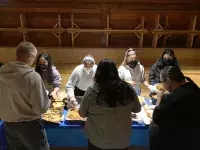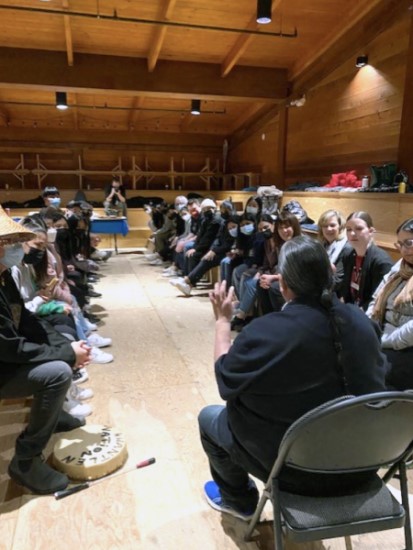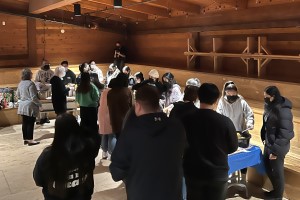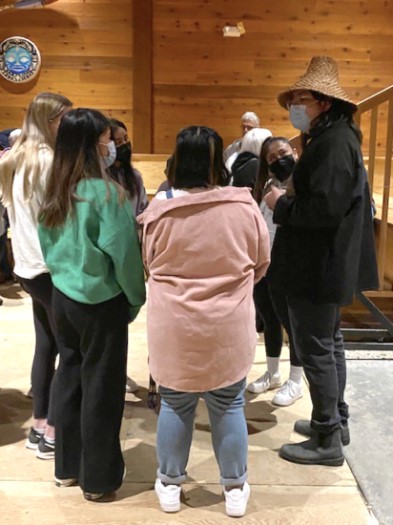
Kwantlen Polytechnic University’s (KPU) Faculty of Health is collaborating with Indigenous communities to improve the ability of nursing students to provide culturally safe care for Indigenous clients while strengthening ties with the community.
By connecting with the Kwantlen First Nation (KFN) community this past year, students were challenged to explore and align their personal views toward Indigenous people while integrating nursing science and education.
“This is a way for students to take meaningful steps to learn, first-hand, Indigenous truth and then take actual steps toward meaningful reconciliation. Students leave campus and go into the community for an education that is not achievable within the walls of a classroom,” says Connie Klimek, chair of KPU’s bachelor of science in nursing program. “Nursing is very experiential, and this initiative demonstrates KPU’s institutional value as a place where thought meets action.”
During the degree program’s community health nursing semester, students are asked to explore their values and biases toward Indigenous people. That exploration laid the groundwork for further reflection at the KFN longhouse in Langley, B.C., where students were given the opportunity to listen to elders and community members share experiences through drumming, songs, and storytelling.
Students were also introduced to Slahal, a traditional game of guessing and sticks, and had the chance to share a meal with KFN community members of all ages.
“We decided to bring food that represented our cultures since they would be welcoming us and teaching us about theirs. When we finished eating, we had the opportunity to sit and listen to the heart-wrenching stories about their past hardships and how the residential schools mistreated them and their ancestors,” says student Amanda Willis.
“In my future nursing career, I am going to hold this experience with me so that I can continue to learn, to listen, to respect, and to be open-minded to all walks of life.”
The collaboration also gave KPU students the chance to join children at the KFN Aboriginal Head Start program. Students supported the healthy emotional, social, spiritual, physical, and intellectual development of children through culture and language, education, health promotion, nutrition, parent and family involvement, and social support.
KPU students also supported an onsite dental program that reinforces children’s oral hygiene and the daily “5210” model of five or more fruits and vegetables, two hours or less of screen time, one hour or more of physical activity, and zero sugary drinks.
KFN Elder Karen Gabriel provided students further education by sharing about the important relationship between Indigenous people and the land and environment. Students learned about plants such as cascara – once used as a laxative – and willow bark, which was used for headaches and pain. Gabriel’s presentations were followed by forest walks at Campbell Valley Regional Park for a hands-on learning experience of Indigenous plants, therapies, and traditions.
“The students love it. I tell them stories about my life and how I learned about plants. I make it fun,” says Gabriel. “A lot of native medicines originated from our wild natural plants.”
Student Deanne Galang says learning from the KFN people was a valuable experience.
“The stories they shared about the fear they have going to the hospital has influenced the care I will provide to my future clients, especially clients of the Indigenous community,” Galang says. “The Kwantlen First Nation community has inspired me to become more selfless and a kinder person to everyone.”
KPU’s Faculty of Health offers multiple programs in health and wellness, including a bachelor of science in nursing, a bachelor of psychiatric nursing, certificates for internationally-educated nurses, a diploma in Traditional Chinese Medicine, along with a selection of continuing education and professional studies courses and programs.